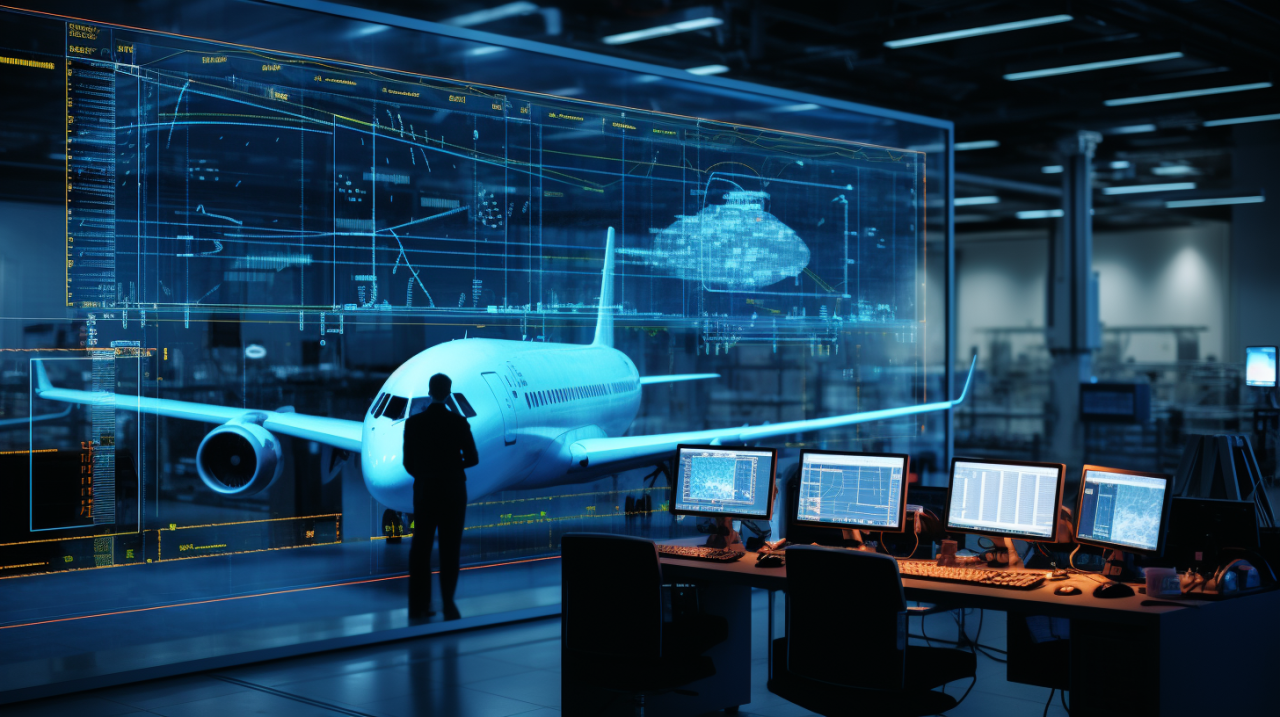The world of aviation is undergoing a remarkable transformation, thanks to the integration of Artificial Intelligence (AI) in various facets of the industry. One of the most groundbreaking applications is the use of AI in jet engine performance prediction. This technological advancement promises to revolutionize how we understand and maintain jet engines, ensuring greater efficiency, safety, and sustainability.

The Role of AI in Aviation
AI has become a pivotal force in the aviation sector, offering unprecedented capabilities in data analysis, pattern recognition, and decision-making. By harnessing the power of machine learning algorithms, AI systems can process vast amounts of data generated by jet engines, providing insights that were previously unattainable.
Understanding Jet Engine Performance
Jet engines are the heart of modern aircraft, and their performance is critical to the overall safety and efficiency of flight operations. Traditionally, performance prediction relied on historical data and manual analysis, which often fell short in terms of accuracy and timeliness.
Limitations of Traditional Methods
Conventional approaches to jet engine performance prediction are limited by their inability to process real-time data effectively. This results in delays in identifying potential issues, which can lead to costly maintenance and unexpected downtime.
AI-Driven Solutions
AI offers a sophisticated alternative by continuously monitoring engine parameters and predicting performance outcomes with high precision. This proactive approach allows for timely interventions, reducing the risk of engine failures and optimizing maintenance schedules.
How AI Enhances Jet Engine Performance Prediction
The integration of AI in jet engine performance prediction involves several key components that work together to deliver accurate and actionable insights.
Data Collection and Analysis
Modern jet engines are equipped with numerous sensors that capture data on temperature, pressure, vibration, and other critical parameters. AI algorithms analyze this data in real-time, identifying patterns and anomalies that could indicate potential performance issues.
Predictive Maintenance
By predicting when and where failures might occur, AI enables a shift from reactive to predictive maintenance strategies. This not only enhances engine reliability but also extends the lifespan of components, leading to significant cost savings.
Benefits of AI in Jet Engine Performance Prediction
The adoption of AI in this domain offers numerous benefits that enhance the overall efficiency and safety of aviation operations.
Increased Efficiency
With the ability to process data continuously, AI ensures that engines operate at optimal efficiency, reducing fuel consumption and emissions. This aligns with the industry’s goals of achieving greater sustainability.
Improved Safety
Accurate performance prediction enhances safety by minimizing the risk of engine failures during flight. Pilots and maintenance teams can rely on precise data to make informed decisions, ensuring passenger and crew safety.
Cost Savings
By optimizing maintenance schedules and reducing unplanned downtime, AI contributes to significant cost savings for airlines and operators. This financial benefit is crucial in maintaining competitiveness in the aviation industry.
Challenges and Future Prospects
While the advantages of AI in jet engine performance prediction are undeniable, there are challenges that must be addressed to fully realize its potential.
Data Security and Privacy
The collection and analysis of vast amounts of data raise concerns about data security and privacy. Implementing robust security measures is essential to protect sensitive information and maintain trust among stakeholders.
Integration and Adaptation
Integrating AI systems with existing infrastructure requires careful planning and adaptation. The aviation industry must invest in training and development to ensure that personnel can effectively utilize AI technologies.
Exploring Further Applications
The success of AI in jet engine performance prediction opens doors to exploring other applications within the aviation sector. Innovations in areas such as air traffic control and cockpit technologies demonstrate the transformative potential of AI across the industry.
Conclusion
The integration of AI in jet engine performance prediction represents a significant leap forward in aerospace technology. As the industry continues to evolve, AI-driven solutions will play an increasingly critical role in enhancing efficiency, safety, and sustainability.

Frequently Asked Questions
1. How does AI predict jet engine performance?
AI analyzes real-time data from engine sensors to identify patterns and predict potential performance issues, enabling proactive maintenance and optimization.
2. What are the benefits of using AI in jet engines?
The use of AI in jet engines enhances efficiency, improves safety, and reduces operational costs by optimizing maintenance schedules and minimizing the risk of failures.
3. Are there any challenges in implementing AI in aviation?
Challenges include data security, privacy concerns, and the need for integration with existing systems. Overcoming these obstacles is crucial for successful AI adoption in aviation.
For more insights into the future of AI in aerospace, visit Cadence AI in Aerospace.

